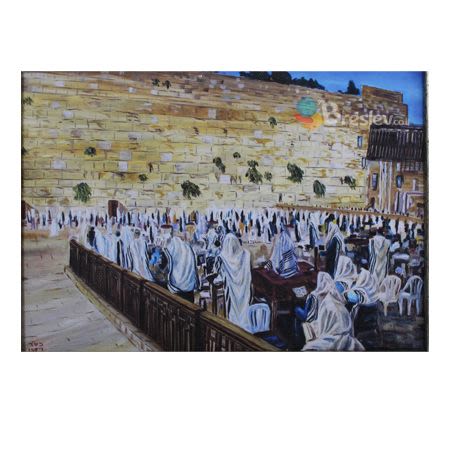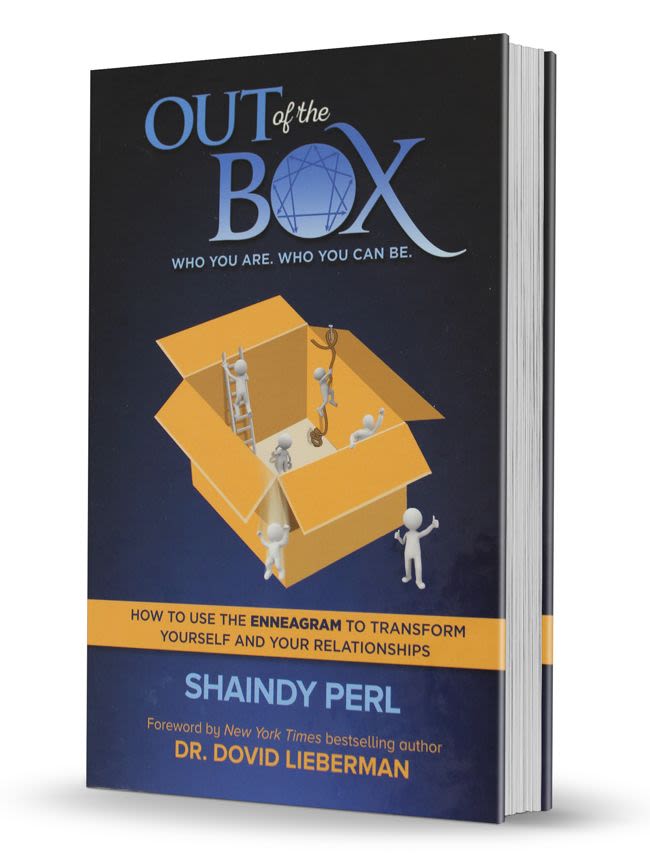
Real Knowledge
If people really believe that this world is just a temporary passageway to eternal paradise, then why do they experience so much marital conflict, anxiety and depression?

There is a written questionnaire that I give out to some of my coaching clients. One of the questions involves rating on a scale of one to ten (where ten is the most): "How much do you believe in the world to come?" Almost everybody that I've given this question to has answered it with a ten. When I noticed this pattern I began to question its validity. How could it be true that these people were so sure of the everlasting bliss of life after death? If they really believed with such a strong faith that this world is just a temporary passageway to eternal paradise why were they experiencing so much marital conflict, anxiety and depression?
As I thought it over, the situation reminded me of a very holy rabbi who came to me years ago complaining that he couldn't sleep at night. The rabbi came in to my office, for the first time, in a state of deep depression and was clearly sleep deprived. He told me that he had suffered from insomnia for many years ever since his grandfather passed away. At the time of his grandfather's passing, my client was by his bedside. Since then,  the rabbi associated death with lying down and going to sleep. Every night he would try to sleep sitting up on a soft chair, but to no avail.
the rabbi associated death with lying down and going to sleep. Every night he would try to sleep sitting up on a soft chair, but to no avail.
Suddenly looking serious, the rabbi turned to me and said: "I don't get it, Dr. Ballen. My family are direct descendants of the holy Baal Shem Tov; I was raised by parents and grandparents whose faith in G-d was rock solid; I know almost everything that our holy books say about life after death, and yet at my age, I must admit that I am still terrified to die."
I didn't know it then, but I know now that the reason for the Rabbi's fear was because a very crucial step in his religious training had been skipped. Yes his torah knowledge was vast and impressive but the knowledge that he had about life after death was academic at best. Clearly this type of "knowledge" was not going to calm the rabbi's primal fears. The next step that he needed to take would be to go out and speak to G-d about his fears and offer many heart-felt prayers to G-d to turn his book knowledge into knowledge that was real.
Let's say that you read about the great rewards that await us in the world to come but found it hard to believe. Although you might want to believe that our present lives are followed by an eternal life, you lack the iron-clad certainty that it's true.
What should you do?
You should go to a private place and simply say to G-d: "G-d, I just read in You Torah that there is an everlasting world of reward for those who follow in Your ways, but this makes no sense to me at all. How do you expect me to believe this? I can't see this world of spirits or communicate with anyone who is supposedly there. All I am seeing in my life is lot's of confusion and darkness around me. I am in great pain most of the time and I am full of doubts about religion in general and You in particular. Honestly, G-d, my perspective is very pessimistic. So what should I do?
The answer is to keep going outside to speak with G-d like this more and more each day. That way your clarity about how you really think and feel about this subject keeps getting sharper. There is no way of knowing in advance whether you'll need to go out there for the next four days or the next four weeks, but there's one thing I can tell you for sure. You will notice something different happening. Maybe it will happen when you are reading a book or when you're listening to a lecture or when you have a "chance" encounter with two people on a bus. You may over hear one person telling the other about a miracle that happened to him and you find yourself somehow paying more attention to this type of conversation than you usually do. On your way home you find yourself thinking about the miracle story that you just heard and without realizing it your mind begins to more seriously consider the possible existence of a spiritual world. A subtle shift has taken place within you and you're somehow a bit more open to the possibility that spiritual events that transcend nature can and do take place in people's lives.
Now what is there to do?
Simply take all of this new information that has "come" to you through various channels and make it the basis of your next conversation with G-d. This time you might say: "G-d I'm not sure, but lately I think I've been noticing things that I'm not usually aware of. Yesterday I overhead two people speaking in the bus and I thought that it might be some type of message from You. Was it? Part of me thinks I'm crazy for asking You this since I'm not even sure that You're listening to me. Yet, even if I'm crazy, I must admit that it feels good to speak to You and I have been in a better mood lately."
In this way, one day at a time your conversations with G-d will deepen and become increasingly meaningful to you. As G-d sees us honestly stretching ourselves to find His truth He is able to reveal more of Himself to us. It's through our persistence is speaking to G-d about everything in our lives that we build up the spiritual vessels for G-d to send us progressively more awareness and understanding of Him. However, when a person doesn't speak to G-d in personal prayer then G-d "can't" give him the spiritual abundance that he seeks because he lacks the spiritual vessels to contain it.
King David wrote of himself that his "cup was overflowing." What he meant by that was that he had prayed so much that he became a solid vessel to hold all of the strength, and wisdom and holiness that G-d poured into him. A person who doesn't speak to G-d is like a cup that is full of holes and cracks. You can pour the whole torah with all its commentaries into him but he won't be strong enough to hold it or benefit from it in any way. He may be a big scholar and even the leader of thousands, and yet at the end of the day when everyone goes home, once again the rabbi's fears begin to surface. Quickly he swallows his medication, hesitates up the stairs to his private rooms, fearful of the shadows on the way, and the dreaded night ahead.












Tell us what you think!
Thank you for your comment!
It will be published after approval by the Editor.